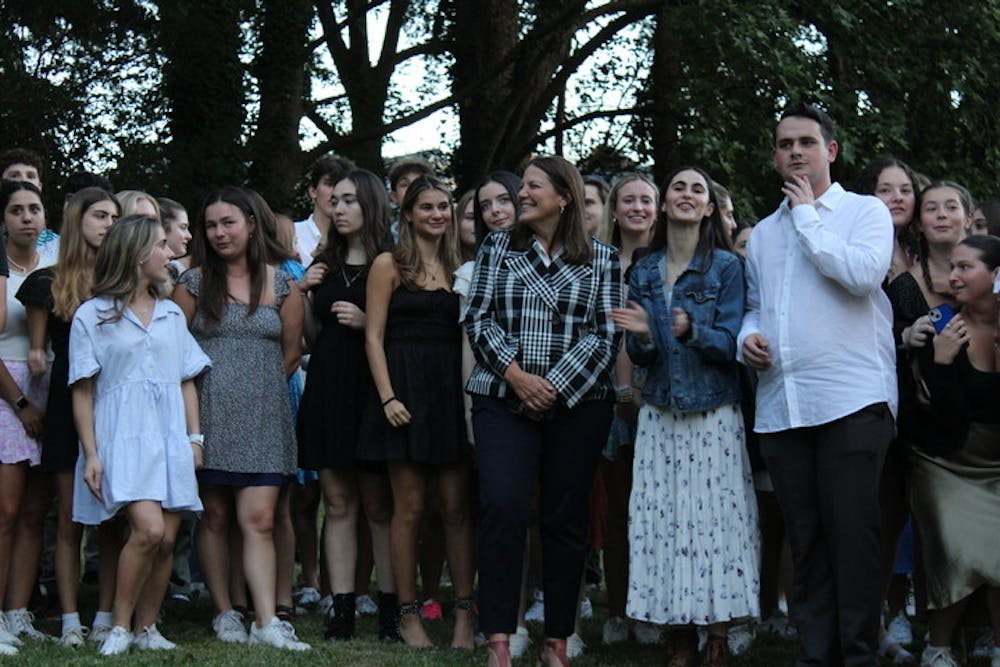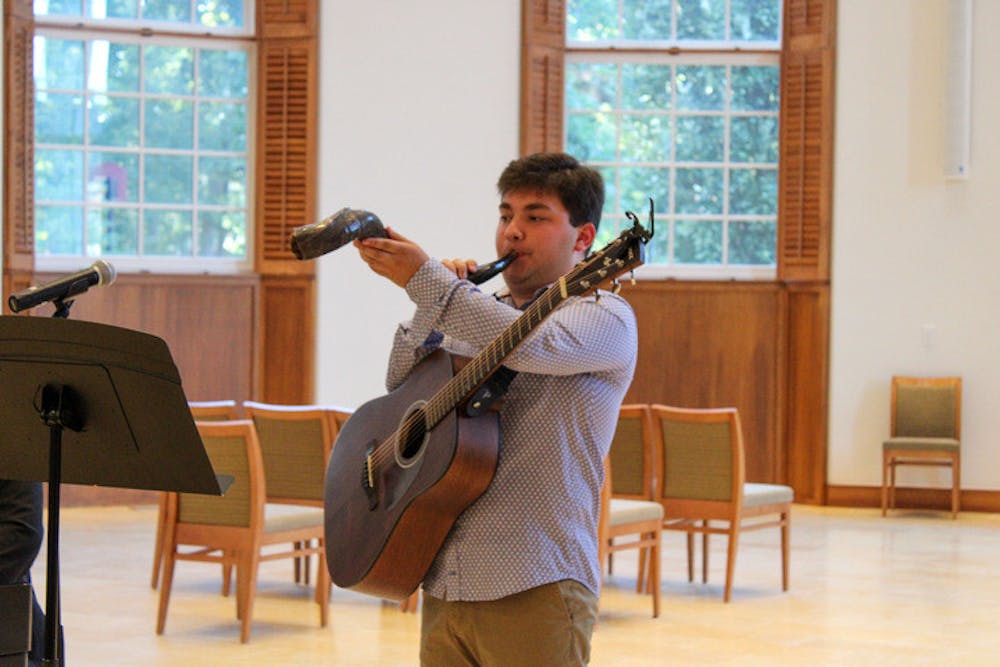Elon University Jewish student organizations Chabad and Hillel gathered from Sept. 15 to 17 to celebrate Rosh Hashanah, the Jewish New Year.
Rosh Hashanah — which means “head of the year” — consists of many different practices throughout the weekend, including community dinners, services and holiday’s traditions.
Sophomore and Hillel member Benji Stern attended Hillel’s Shabbat service on Sept. 16 and said he loved seeing his roommate participate in the service.
“I love when my roommate, Simon, blows the shofar,” Stern said. “He’s really talented and it’s a really grandiose moment. It sets a really awesome tone for the new year.”
The blowing of the shofar — a ram’s horn — is one of the many traditions that takes place during Rosh Hashanah, symbolizing the holiest day in the Jewish year.
Other Rosh Hashanah traditions consist of dipping bread and apples into honey to signify the desire for a sweet new year, and the observance of tashlich. Senior and co-president of Hillel Jeremy Lazoff said tashlich symbolizes atonement.
“We take bread and we throw it into a body of water,” Lazoff said. “The bread symbolizes our sins and bad deeds that we’ve done over the last year. We’re sort of casting them away in order to cleanse our soul for the new year.”
Hillel and Chabad also organized meals throughout the weekend for Elon students celebrating the holiday as a community.

Sophomore Sam Phillips attended Shabbat dinner at the Chabad house on Sept. 15 to celebrate Rosh Hashanah and said he feels it is important to have a strong Jewish community at Elon.
“I like going to the Shabbat dinners,” Phillips said. “I like feeling like I’m at home still. When I was choosing Elon, I didn’t know that there were a lot of Jewish people here, but then I realized that there were a lot and that was really comforting.”
Lazoff said the Chabad and Hillel houses create a feeling of community for Jewish students at Elon.
“I think one of the greatest assets that we have is the Hillel House,” Lazoff said. “I’ve never walked in there and there hasn’t been someone in there which I think is incredible. Our house managers and even my co-president are that sort of welcoming community.” Phillips also feels that sense of community at the Chabad house.
“The Chabad house, the family and all the kids are very homey and very sweet,” Phillips said. “They want you to come back and they care to talk to you about who you are.” Both organizations hold events for Elon students, regardless of their faith.
For the past two years Chabad has partnered with Elon’s Panhellenic Association for the Mega Challah Bake, to strengthen the relationship between the Jewish and Panhellenic communities at Elon. Hillel has held a “bring a friend” Shabbat where Hillel members were encouraged to bring friends who had never attended a Shabbat service before. On Oct. 6, Hillel will hold a joint Shabbat service with the Black Student Union.
“They reached out to us and said we want to learn more about what Shabbat is and what you guys do,” Lazoff said. “We coordinated a date where they would come here, we’ll have a nice dinner, and we’ll talk about exactly what Shabbat means to us. We want to give them the opportunity to partake if they want, and then we will engage in a dialogue about our differences but also our similarities so that we’ll learn more about each other’s cultures.”
Following the celebration of Rosh Hashanah, Hillel and Chabad are preparing for the holiday of Yom Kippur, which will be celebrated on Sept. 24 and 25. Hillel will be holding a meal before the fast and Kol Nidre services on Sept. 24 and morning services, Limmud services and a Break Fast on Sept. 25. Chabad will be holding a service on the night of Sept. 24 and holding morning services, evening services and a Break Fast on Sept. 25. Yom Kippur is the holiest day in Judaism and is regarded as a day of atonement.
“Yom Kippur is a fasting holiday so we go without food and water for 26 hours and that’s really tough on people,” Lazoff said. “We join together as a community in sharing that same sort of anguish and after sharing that holy experience we break fast and celebrate.”


